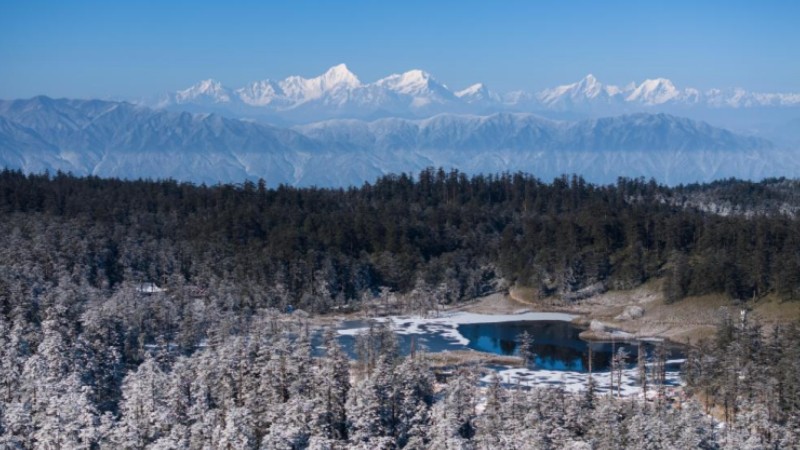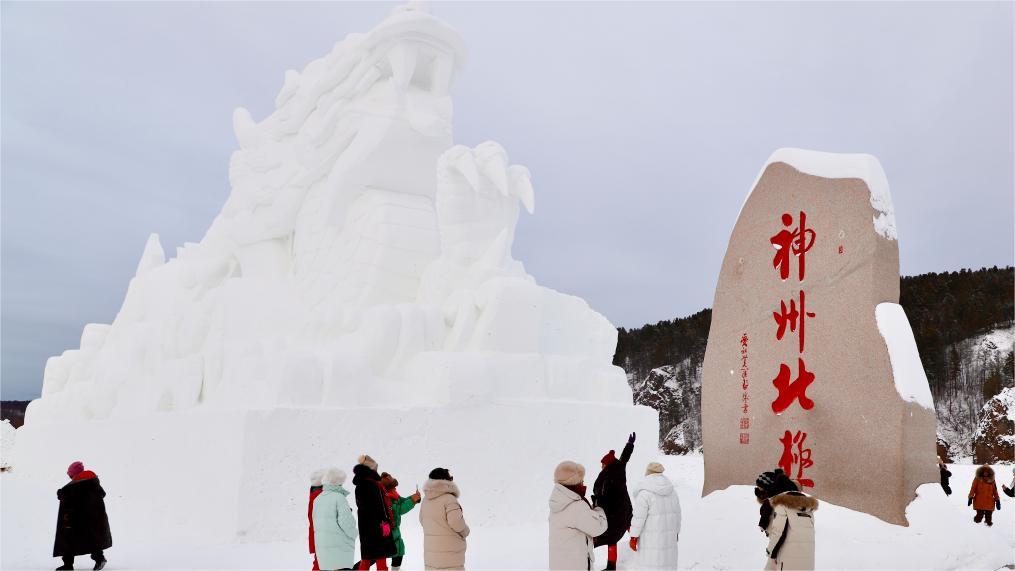Feature: Syrian family's hard life under shadow of U.S. occupation
DAMASCUS, Dec. 28 (Xinhua) -- In the heart of Al-Hasakah city in northeastern Syria, a family of six struggles under the weight of challenges imposed by the presence of U.S. forces in northeastern and eastern Syria.
Ghassan Al-Hamoud, a 51-year-old schoolteacher and father of four, aired his frustration about their daily challenges. Speaking to Xinhua, he highlighted how the U.S. presence in the northeastern and eastern regions severely impacts every facet of life, especially for the people residing in the northern region.
"We are facing various challenges today in all aspects due to the presence of the U.S. occupation in the region," Ghassan said.
He lamented the loss of peace, recalling that educational tools, food security, and essential living necessities were abundant in the past when family relationships thrived and traveling between provinces was simple.
"Today, the U.S. occupation has stripped us of these vital aspects," he complained, saying land seizures have led to the displacement of those refusing to live under this occupation.
"The U.S. occupation continues to press on people as it controls the country's resources, oil wells, agricultural crops, and border crossings," said his wife, Al-Batoul Aliwi, a 45-year-old teacher.
The U.S. control has opened the door to smuggling and chaos in product marketing, exerting an immense negative impact on the economy and society, she said.
Due to inadequate healthcare, immunizations, and proper care, "diseases have worsened," she added, revealing that there is an increase in the cancer rate in Al-Hasakah province and the eastern region due to burnings controlled by U.S. forces using primitive oil refining methods.
Qais Aliwi, a 32-year-old merchant and the brother of Al-Batoul, highlighted the disastrous impact of the U.S. presence and actions in Syria on the youth's economic opportunities.
"The direct and explicit impact of the U.S. occupation in Syria's eastern region has severely affected the lives of the youth," Aliwi asserted, noting that economic opportunities have disappeared entirely, compounded by the challenges posed by the U.S. policies and the fluctuating exchange rate.
Emigration surged due to the U.S. occupation and the Caesar Act, a U.S. legislation that sanctions the Syrian government for alleged war crimes against the Syrian population that came into force in 2020, squeezing the space of the Syrian populace.
Noor Al-Hamoud, an 11-year-old student, shared her perception of the repercussions of U.S. occupation.
"They closed all the schools near our homes, and now we have to walk long distances because of the U.S. occupation," she said.
The Al-Hamoud family's tribulations mirror the wider plight endured by communities in northeastern and eastern Syria while trying to grapple with the consequences of the U.S. presence in the region.
On the government level, officials have strongly denounced the losses caused by the U.S. occupation of oil fields in Syria.
Farhan Jamil Abdullah, head of the government-run Syrian Oil Company, said in July that as a result of the U.S. sanctions and military presence in Syria, oil production by his company had decreased from 385,000 barrels per day before the crisis to 15,000, while gas production had gone down from 30 million cubic meters per day to 10 million cubic meters.
Abdullah added that most of the energy fields in Syria have gone out of government control as a result of the U.S. occupation.
Oil Minister Firas Hassan Kaddour said in July that the U.S. occupation had led to economic losses of about 100 billion U.S. dollars in Syria's energy sector.
Photos
Related Stories
- U.S. gives Ukraine year's final weapons package as Biden administration exhausts funding
- Supreme Court of U.S. Michigan keeps Trump on 2024 primary ballot
- Yearender: 2023 witnesses more economic, political, social chaos in U.S.
- Americans, Europeans pinch pennies in 2023 Christmas season
- Iraqi Shiite militia claims rocket attack on U.S. base in Syria
Copyright © 2023 People's Daily Online. All Rights Reserved.









